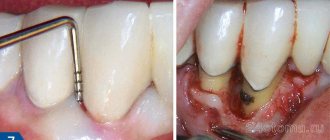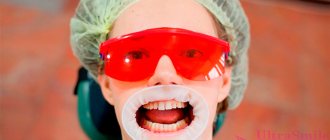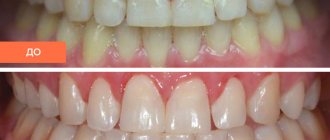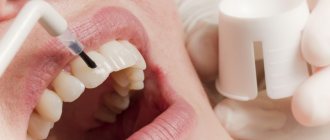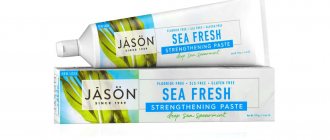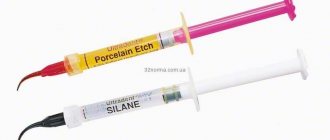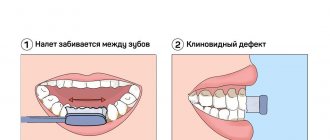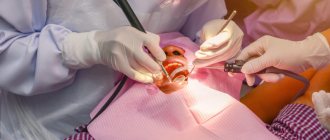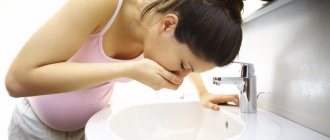The overwhelming number of oral diseases is associated with the activity of pathogenic bacteria. The plaque that forms in the mouth contains food debris and dead particles of the epithelium. Even with regular hygiene and care, the oral cavity still contains pathogenic microorganisms and their waste products. Bacterial plaque is the main cause of the development of caries and periodontal disease. It is impossible to completely get rid of plaque in the mouth and prevent the growth of bacteria at home: it is quite difficult to clean the interdental spaces and deep fissures with a regular brush. Accumulated deposits can be removed using professional oral hygiene.
Hygiene = whitening?!
So much has already been said about the importance of maintaining oral hygiene.
However, patients are still wary of this procedure. Is it really that important?! Professional cleaning is one of the most important oral care procedures! Its colossal role is in the prevention of many diseases not only of teeth, but also of gums!
What is adaptive teeth cleaning? Why is it needed?
Adaptive cleaning is a method of getting a small patient accustomed to dental procedures according to the principle “from simple to complex.” First, the child meets the doctor, and the doctor tries to gain the child’s trust. The doctor very carefully, in a playful way, lets the child feel how the brush “buzzes”, helps him get used to the sensations of dental instruments in the mouth, the taste of the toothpaste, and the water. In addition, during adaptation cleanings we teach parents how to care for their child’s teeth at home.
Teeth cleaning and whitening
Many people think that after brushing their teeth will become several shades lighter, but this is not true. Cleaning and whitening are completely different procedures.
The first is aimed at removing plaque, including pigmented plaque, cleaning all surfaces of teeth, and polishing them. After this manipulation, the teeth do look lighter, but only by 1-2 shades. But whitening can dramatically change the color of your smile due to various types of effects on tooth enamel. Thus, it becomes 8 or even 10 shades lighter, and this is a very noticeable difference.
How is professional hygiene performed?
Carrying out professional oral hygiene occurs in several stages.
- To begin with, the patient, doctor and assistant are prepared. Then the oral cavity is cleaned of hard dental deposits - these are stones. An ultrasonic scaler helps get rid of them. This device creates vibration that easily breaks all the stones.
ATTENTION! If you have a pacemaker, the use of ultrasound machines is not recommended! This may adversely affect the performance of the heart pacemaker.
- The next step is to clean the teeth from soft plaque using the AirFlow device. It works like a sandblaster. It delivers a mixture of cleaning powder and water under pressure. Abrasive particles of this composition remove soft and pigmented plaque from the enamel. Most often, the main active ingredient is soda; it cleans teeth very effectively and is completely safe. Glycine can also be used; it is more often taken for cleaning by children and people with an increased risk of allergies.
Thus, professional hygiene methods are: ultrasonic cleaning and cleaning with an AirFlow device.
After the manipulations, the doctor examines the oral cavity and cleans the interdental spaces, if necessary. After cleaning, carious cavities and other damage to the enamel are clearly visible, so the specialist can immediately tell which teeth exactly need therapeutic treatment.
- The next step is to polish all surfaces of the teeth. This is a very important part of the procedure! On a smooth polished surface, plaque settles much more slowly. This reduces the risk of caries.
- After cleaning, the enamel is remineralized. This is the saturation of the tooth with useful minerals, which strengthen the structure of hard tissues and also reduce increased sensitivity.
A full range of professional oral cleaning includes:
- Removing all types of plaque
- Teeth polishing
- Remineralizing therapy
improvement in general health
The key to improving dental health lies in our daily habits. Brushing and flossing your teeth daily helps remove plaque buildup. Regular visits to the dentist will help get rid of tartar and buildup in hard-to-reach places and will also help prevent gum disease. However, good oral hygiene is not enough to treat active and advanced periodontal disease. Regular dental visits reduce the risk of tooth decay, bad breath and other problems, which improves your overall health.
ATTENTION!
For patients who care about the oral cavity and the health of the body as a whole, we have prepared an incentive. You can see the cost of professional hygiene here. For you, professional oral hygiene at a special price of 3000 rubles. + a brush as a gift when registering at the KIT department on Yubileinaya, as well as 3500 rubles. when registering at the KIT departments on Sukromka and KIT on Sharapovsky Proezd. To take advantage of the offer, fill out the form below, get a consultation and take the first step towards dental health and protecting your body's long-term health.
FAQ
How often do you do oral hygiene?
To avoid caries and extend the life of fillings and other artificial structures, it is necessary to regularly carry out professional oral hygiene. The optimal period is once every 6 months. In some cases - more often. Depends on the rate of accumulation of dental plaque. For more detailed information and to determine your dental condition, make an appointment with a dental hygienist.
How is oral hygiene performed in dentistry?
The ability to effectively remove plaque buildup using airflow is a huge step in the prevention and treatment of gingivitis and periodontitis. Air-flow is fast, painless and silent. In addition to removing stains, airflow is used to clean orthodontic braces, as well as to clean implant sites and crowns to prolong the life of implants and orthotics. The air-flow technique involves the use of an air-powder mixture, which is combined with water spray, which eliminates plaque and stains. Because it is non-abrasive, which does not cause discomfort even for sensitive gums. Next, the teeth are polished with a brush and pastes. Microbes cling less easily to the smooth surface of teeth, and dental deposits accumulate less and more slowly. The final stage is to coat the teeth with a remineralizing composition. It can be fluoride or calcium based. At the end of the procedure, the teeth become smooth, brighten by 0.5-1 tone, and a feeling of freshness appears.
What should you not eat after oral hygiene?
At the end of professional hygiene, the teeth must be covered with strengthening preparations (fluoridation and remineralization are carried out), so you need to wait a couple of hours to allow the compounds to be absorbed and not damage the protective film. After cleaning, the enamel becomes porous and pigments from products are more absorbed into it. Therefore, you should refrain from foods and drinks that can stain the enamel for at least a day to maintain the effect of clean and white teeth.
How to maintain proper oral hygiene and use a brush and floss?
Individual oral hygiene is carried out at home using a toothbrush, floss and mouth rinse. Let's look at the basic recommendations for oral hygiene.
- The process of brushing your teeth doesn't have to be quick. When you brush your teeth, take your time. It is not recommended to brush your teeth immediately after eating, especially if you ate something sour, such as grapefruit. You need to brush your teeth for at least two minutes. Also remember to brush the outer, inner and chewing surfaces of your teeth and tongue.
- Hold the toothbrush at a slight angle and brush in short sweeping motions from the gum to the incisal (chewing) edge. Brushing too hard or using harsh bristles can harm your gums. Use the right brush and toothpaste. When choosing a brush, it is better to consult your dentist.
- Don't ignore dental floss. It fights stuck food and plaque between teeth. The advantage of floss is that you can carry it with you when you can’t brush your teeth with a brush.
- In addition to daily brushing and flossing, use a mouthwash. Regular use of mouthwash freshens breath and fights plaque and gingivitis. For optimal results, use the oral liquid twice a day and hold it in your mouth for 30 seconds, this will reduce the threat of gum disease by 60%.
- Always rinse your toothbrush with water after brushing. Store the brush upright and let it dry before using it again. Try to store it separately from other brushes to prevent cross-contamination. Toothbrushes should not be covered regularly or stored in closed containers, as this may encourage the growth of bacteria, mold and yeast. Change the brush or the replacement head of your electric brush in time every three months.
Cleaning for gum disease
Professional oral hygiene eliminates the main cause of inflammatory processes in the gum tissue - plaque. Thus, this procedure heals soft tissues. In the absence of stones and plaque, the gums restore their shape and function. Often, in cases of acute periodontitis or gingivitis, simple professional cleaning is sufficient to eliminate bleeding, pain and inflammation. Therefore, if you have acute or chronic gum disease, it is very important to visit your dentist regularly and maintain a good level of oral hygiene yourself.
Why is it important to have professional cleaning?
If home hygiene is irregular, then food particles remain on the teeth. This becomes a breeding ground for bacteria. During their life, they release acid that destroys enamel. Stones and plaque also form, which have a pathological effect on the gums. Inflammation and bleeding occurs. Inflammation from the gums spreads to the bone tissue, and it decreases in volume. Teeth lose support, become loose, and fall out. Therefore, it is important not to lead to such complications and contact the dentist on time.
What is the difference between individual and professional oral hygiene?
Individual hygiene includes all home methods for caring for the oral cavity. This is daily brushing with a manual, electric, sonic or any other brush, using brushes, rinses, irrigator or dental floss. Daily care determines the level of oral hygiene.
Professional hygiene helps to cope with the problem of accelerated plaque formation and removes stones that cannot be removed at home. Therefore, visiting a dentist prevents the occurrence of many oral diseases.
Recommendations after hygiene
After professional hygiene, it is recommended to adhere to several rules:
- Quit smoking for 1-2 days. Nicotine penetrates very deeply into the enamel, thereby giving an unpleasant yellow tint to the teeth. In the first two days after cleaning, the enamel is very susceptible to various pigments, so in order to maintain excellent results, bad habits must be abandoned.
- Limit the consumption of coloring products. White diet. Eating foods such as beets, carrots, tea, and coffee can lead to excessive pigment accumulation in the first days after visiting the dentist.
- Avoid eating aggressive foods. This category includes spicy, salty, hot and cold foods. Such irritating factors can provoke manifestations of increased sensitivity of teeth.
If you follow the recommendations, the result will last longer and there will be no side effects.
Regularity of the procedure
You should visit your hygienist regularly to maintain healthy gums and teeth. The frequency of visits is determined by the dentist based on the clinical situation. Usually once every six months is enough.
For those patients who wear braces, visits every 3 months are recommended, since careful home hygiene is impossible during orthodontic treatment. The arch and the locking mount interfere with cleaning the dental spaces.
For those who enjoy coffee, strong tea and/or smoke, 3-4 times a year. Bad habits negatively affect the oral cavity, plaque and stones form faster.
It is also important to undergo preventive hygiene before and during pregnancy. A pregnant woman's gums are subject to hormonal changes, so it is important that there is no infection in the oral cavity. Therefore, all teeth must be healthy, there must be no stones or plaque in the mouth.
How much does the procedure cost?
The price of professional hygiene starts from 10,000 rubles. for a full range of hygiene procedures for both jaws. You can be confident in the quality and safety of the materials used at Dr. Lemberg's Dental Clinic. All manipulations are performed only by qualified specialists.
Oral hygiene is the most important aspect of oral care! Taking care of the cleanliness of your teeth means taking care of their health. A good level of hygiene and regular visits to the dentist can prevent many diseases at the earliest stages. The specialists at Dr. Lemberg Dental Clinic will take care of your smile and help you maintain healthy teeth!
Regular dental care helps maintain oral health for many years. Many people neglect simple rules of oral care. Often, those who brush their teeth twice a day develop dental diseases. Plaque and stones form on the enamel, which have a pathological effect on the teeth and gums. Visiting a dental hygienist can help prevent dental diseases. If you have chronic gum disease, it is recommended to visit a doctor once every 3 months.
Below we will talk about 10 reasons why you need to do professional oral hygiene.
1. Plaque remains on the teeth after eating, and bacteria develop. During their life, they release acids that destroy enamel and dentin. Bacteria cause inflammatory gum disease and bad breath.
2. At the very beginning, the plaque is soft. It then turns into hard dental deposits: calculus. Stones are located above the gum, under it. Gradually, the stones push the gums back, inflame them, and periodontitis develops.
3. Patients who have undergone dental treatment, prosthetics, implants, and dentures should be even more attentive to oral care. Plaque accumulates near the crown and implant, which leads to gum inflammation and implant rejection.
4. It is important to visit a hygienist during orthodontic treatment. Removable orthodontic appliances need to be cleaned by your dentist once a month. And installed braces affect home hygiene. It is difficult for the patient to perform it fully: the locking fastenings and arches interfere. Therefore, you need to visit a doctor for professional hygiene once every 3 months.
5. The dentist cleans all enamel surfaces from stones, the enamel becomes lighter. The smile becomes naturally snow-white.
6. Before bleaching, professional hygiene must first be carried out, since the bleaching solution will not be able to fully penetrate the enamel through plaque and stones. The result of the procedure will be unpredictable. Important: professional cleaning is carried out no later than one day before bleaching, and no earlier than seven days.
7. Professional hygiene ends like this: the dentist carefully examines all surfaces of the tooth enamel. This allows you to suspect caries in the early stages and treat it in time, without waiting for complications. After this stage, dental veneers can be installed at the patient’s request. The doctor can refer the patient for diagnostics and consultation with related specialists.
8. Upon completion of the procedure, the doctor talks with the patient and selects individual hygiene products. He uses a model to show how to properly care for your oral cavity at home. It is important to choose the right toothpaste and brush.
9. If a person abuses smoking, there will always be stones and black plaque on his teeth. If you can’t quit a bad habit, it is recommended to visit the dentist once every 3 months.
10. The final stage of professional hygiene is polishing all enamel surfaces. Thanks to this, the teeth remain smooth and it is more difficult for food debris to attach to them. This means that plaque will form less frequently.
In order not to encounter dental diseases and toothache, it is important not to neglect home and professional hygiene. Carry out regular professional hygiene, and your smile will be healthy.
